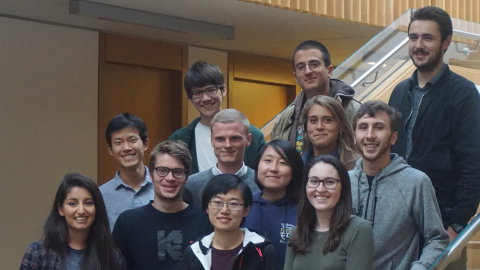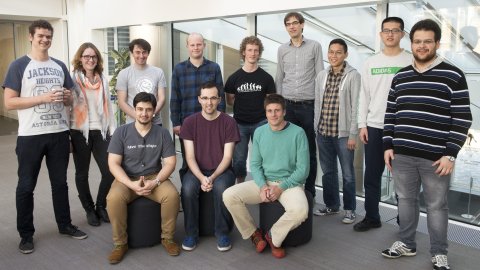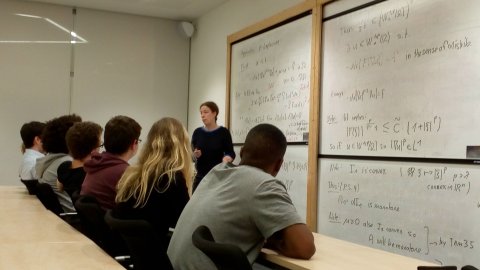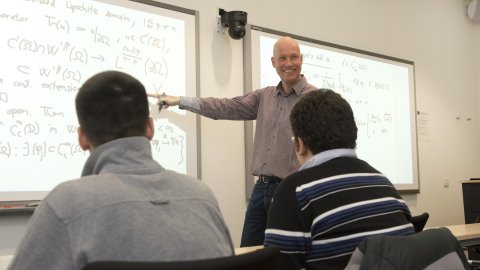EPSRC Centre for Doctoral Training in Partial Differential Equations: Analysis and Applications
The Centre
The CDT offered a 4-year DPhil programme with the central aim of producing highly trained, outstanding mathematicians with deep expertise and interdisciplinary skills in the analysis and applications of Partial Differential Equations (PDEs) and related areas of core mathematics and its interfaces.
The first year consisted of a foundation module, core courses and two 10-week mini-projects in different areas of research with the purpose of both developing knowledge and helping to decide on a suitable research topic. There are also Topical courses and a regular seminar series to advise of the latest advances in related research.
The final cohort for the CDT began their studies in October 2018 and the CDT is no longer open to new applicants.
The OxPDE Research Group still warmly welcomes applications from prospective D. Phil. Students.
Partial Differential Equations
PDEs are at the heart of many scientific advances. The behaviour of every material object in nature (time-scales ranging from picoseconds to millennia, and length-scales from sub-atomic to astronomical), can be modelled by PDEs, or equations with similar features. Many subjects revolve entirely around their underlying PDEs, including:
• Fluid dynamics: the Euler equations & the Navier-Stokes equations;
• Electrodynamics, optics and electric circuits: Maxwell’s equations;
• Non-equilibrium statistical mechanics: the Boltzmann equation;
• Quantum mechanics: the Schrödinger equation;
• Cosmology: Einstein's equations of general relativity.
The role of PDEs within mathematics (especially nonlinear analysis, geometry, topology, stochastic analysis, numerical analysis & applied mathematics) and in other sciences (physics, chemistry, life sciences, climate modelling/prediction, materials science, engineering & finance) is thus fundamental. It is also increasingly significant as the demands of applications grows, leading to important new developments in the analysis of PDEs.









